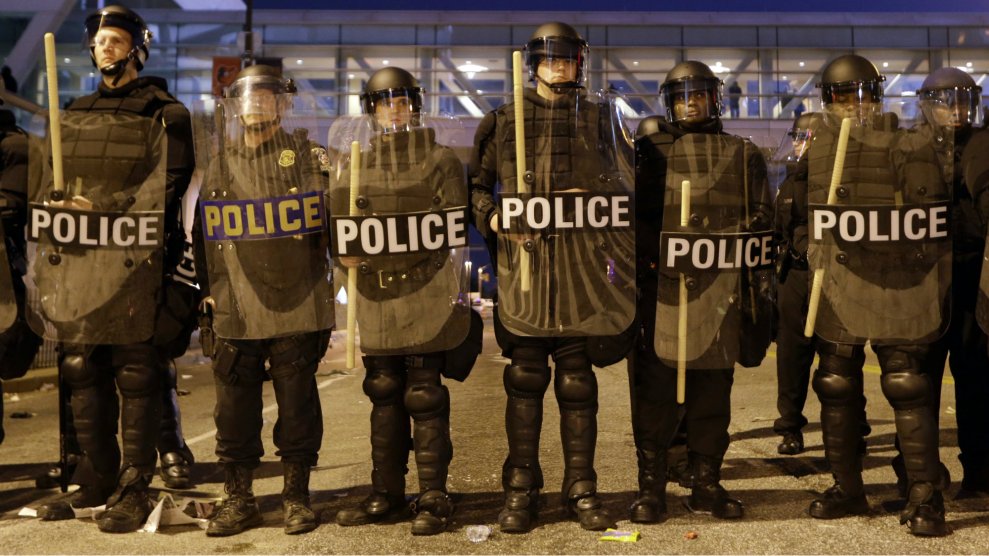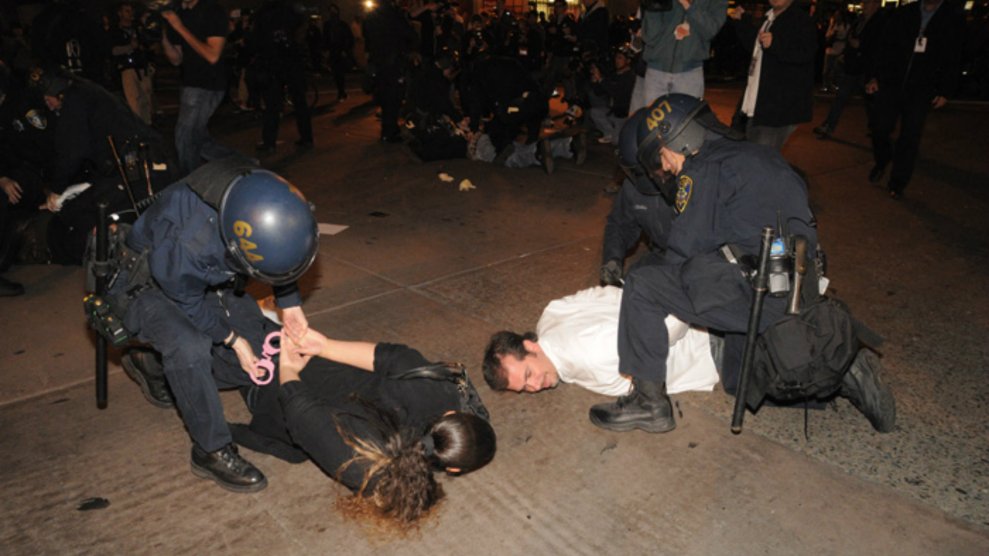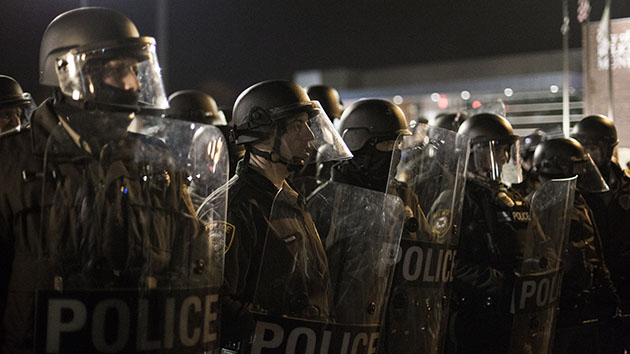
Police line a street in downtown Baltimore in response to protests that followed a rally for Freddie Gray.Patrick Semansky/AP
This week, the Pew Research Center released a report entitled “Behind the Badge,” a comprehensive survey of nearly 8,000 law enforcement officials across the United States examining their attitudes toward their jobs, police protests, interactions with their communities, racial issues, and much more. The report states that it is appearing “at a crisis point in America’s relationship with the men and women who enforce its laws, precipitated by a series of deaths of black Americans during encounters with the police.”
According to 2016 University of Louisville and University of South Carolina study, police fatally shoot black men at disproportionate rates. Since the 2014 shooting of Michael Brown in Ferguson, Missouri, the last few years have been marked with protests leading to a national discussion around race and policing. This report explores how law enforcement officers in the United States view the intersection of policing and race—often, not surprisingly, with very different perspectives between white and black officers.
Here are some of the highlights:
- Racial equality: When asked about racial inequality in the country, 92 percent of white officers answered that the United States does not need to make any more changes to achieve equal rights for black Americans. Only 29 percent of black cops agreed. This is in sharp contrast to white civilians, the report notes: Only 57 percent of white adults believe that equal rights have been secured for black people; a mere 8 percent of black people agree, Pew found in a separate survey.
- Demonstrations against police: Sixty-eight percent of the officers interviewed say demonstrations against police brutality are motivated by anti-police bias, and 67 percent say the deaths of black people at the hands of police are isolated incidents. Once more, there is a significant racial divide between the respondents: 57 percent of black cops think the high-profile incidents point to a larger problem, while only 27 percent of their white colleagues agree.
- Police involvement in immigrant deportation: During the 2016 campaign, Donald Trump supported local law enforcement having more of a role in deporting undocumented immigrants, and a small majority of cops agree. Overall, 52 percent of police officers believe they should have an active role in immigration enforcement; 59 percent of white cops agree, compared with 35 percent of black officers and 38 percent of Hispanic police officers.
- Community policing: The idea of training police officers to work with community members to achieve better policing has become the center of the conversation surrounding police reform since President Barack Obama organized a task force around the “community policing” concept. But 56 percent of all police officers interviewed consider an aggressive approach to policing more appropriate in certain neighborhoods than the approach of being courteous. There was no racial breakdown for this result.
- Physical confrontation: For most police officers, according to the report, physical confrontations do not occur every day, but one-third of those interviewed reported having a physical struggle with a suspect who was resisting arrest within the last month. Thirty-six percent of white officers reported having such an incident, while 33 percent of Hispanic officers reported the same thing. Only 20 percent of black officers said they had a physical altercation with a suspect.
The report also includes police officers attitudes on job satisfaction and police reform proposals. “Police and the public hold sharply different views about key aspects of policing as well as on some major policy issues facing the country,” the report concludes.
Read the full report here.
















